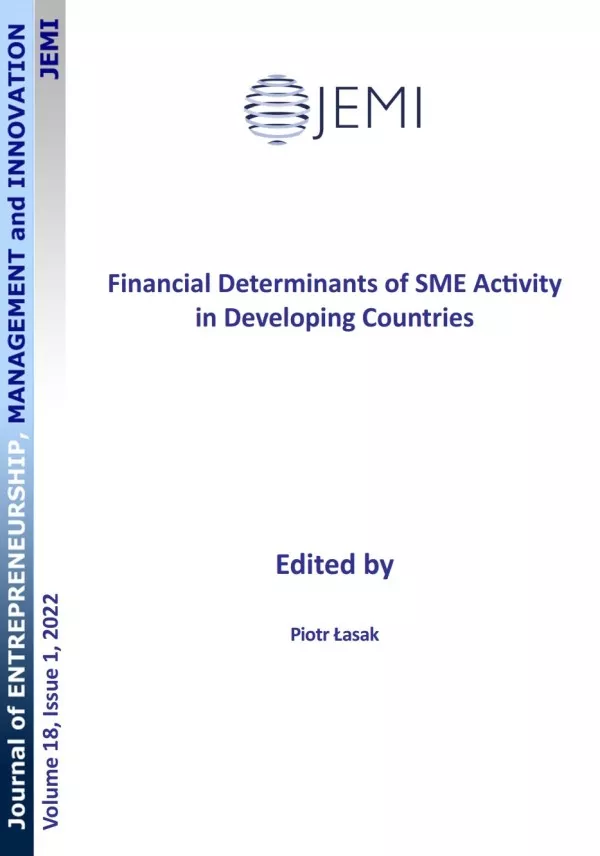The mediating effect of the budget process on the performance of small- and medium-sized enterprises in Ho Chi Minh City, Vietnam
The mediating effect of the budget process on the performance of small- and medium-sized enterprises in Ho Chi Minh City, Vietnam
Author(s): Vuong Khanh Tuan, Premkumar RajagopalSubject(s): Social Sciences, Business Economy / Management
Published by: Fundacja Upowszechniająca Wiedzę i Naukę "Cognitione"
Keywords: SMEs; performance management; strategy implementation; organizational commitment; business planning; managerial control; budget process; Vietnam
Summary/Abstract: PURPOSE: The purpose of this study is to aid the small- and medium-sized enterprise (SME) sector in Ho Chi Minh City (HCMC), resulting in enhancement, improved management performance, and sustainability in adopting beneficial competitive practices aligned to the new era. The study was conducted to determine the key managerial factors that affect the performance of Vietnamese SMEs. We analyzed factors like business planning, organizational commitment, strategy implementation, and managerial control, adopting the budget process as the mediating factor, as it was determined to positively affect SME performance. METHODOLOGY: In the pilot study, we collected 105 samples using the convenience technique and analyzed the results to examine and validate the reliability of the research instrument. A quantitative approach was used in the pilot study, which tested for reliability using Cronbach’s alpha and exploratory factor analysis (EFA) with the software IBM SPSS 20.0. The real study was conducted using quantitative analysis, where the randomization technique was applied to 403 suitable samples. A full quantity of data was tested using Cronbach’s alpha, confirmatory factor analysis (CFA), and EFA. Structural equation modelling (SEM) was used to test both the conceptual framework and the hypothesis of the real study. This study was conducted from October 2016 to June 2020. FINDINGS: Analysis of SMEs identified the mediating factor, budget process, as having a significant effect on the dependent factor, SME performance. Regarding the total effect on SME performance, among four independent variables, the variable with the highest positive total effect on SME performance was strategy implementation. The second highest positive total effect on SME performance was organizational commitment; the third highest positive total effect was business planning; and the fourth was managerial control. Therefore, it can be concluded that when SME managers change these key factors, they will change the level of performance for their enterprises. IMPLICATIONS: This research provides insight into the performance management of SMEs and how managerial factors affect the level of this performance management. In the results of study, the following key factors have been identified: strategy implementation, organizational commitment, business planning, managerial control, and the mediating role of the budget process. These independent variables have significant total effects on SME performance, and the theory’s implication builds on performance management to contribute to the field of management. This research model can be applied to management practices to restructure, innovate, and improve the overall performance of SMEs. Additionally, this study will provide SMEs with management procedures to compete, adapt, and enhance their sustainability within the global market. ORIGINALITY/VALUE: This model provides researchers and practitioners with the invaluable knowledge needed to manage enterprise performance, which will assist SMEs in developing as sustainable and competitive players in this new era.
Journal: Journal of Entrepreneurship, Management and Innovation
- Issue Year: 18/2022
- Issue No: 1
- Page Range: 65-92
- Page Count: 28
- Language: English

